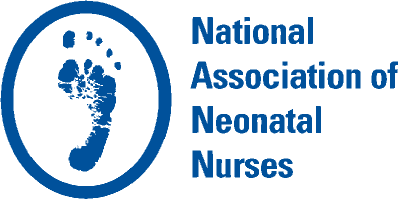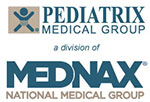Feature
Nursing Leadership During a Time of Crisis
Lori Gunther, MS CPXP
CEO of Synova Associates, LLC
During the current pandemic, we have all heard the statements, "these are unprecedented times," or "we have never seen anything like this," or "the world will never be the same after this." And although these statements are true, more specific information and resources are needed to effectively guide leaders during this time. So how does one lead a health care team through a crisis? Here are 4 strategies you can use to lead during a crisis.
Communicate Often and Clearly
According to Gene Klann (2003), author of the book Crisis Leadership, information is powerful because it:
- Reduces emotional distress caused by the unknown
- Diminishes fear
- Provides tactical guidance
- Demonstrates to employees that their leaders are concerned, involved, knowledgeable, and on top of the situation.
Communicate face-to-face as your first choice, whether in person or through virtual channels. With a plethora of tools for hosting and personalizing virtual meetings, quarantines don't have to stand in the way of your group coming together face-to-face. "Key information should be handled with the 3 Rs: review, repeat, reinforce," Klann adds. "If information is shared only once, it cannot be assumed everyone has received it—or if they did, that they understand it."
Many teams have transformed their style of communication during this pandemic and have expressed high levels of engagement and satisfaction with newer virtual platforms. In Atlanta, GA, one neonatal unit director has hosted live updates on the unit's closed Facebook page twice a week. This has cut down on misinformation and has increased staff's usage of the page, creating a more unified team approach. Many leadership teams have introduced web-based leadership meetings. Participants have found that these meetings have created a less tense environment and a better sense of comradery.
Remain Calm and Confident
The National Center for PTSD has assessment tools and research to support their model of Stress First Aid with the 7 Cs. "Stress First Aid is based on a set of five evidence-based elements that have been linked to better functioning after stress and adversity across a number of settings." As a leader, you should assess your staff, patients, and families daily and listen to their concerns. Alongside your teams, develop coordinated responses and support tools for staff and families in crisis and consistently address patient and employee safety. Staying calm and confident will create an environment of trust and effective, transparent leadership. There will be times when you will feel less confident as a leader, especially during a pandemic. When you are unsure of an answer, the best approach is to say "I will find the answer and get back to you." Anticipatory guidance is a very helpful technique that lets people know what you have to go through to get information that is changing so rapidly.
Peer Support is Crucial
Processing your current struggles with peers is crucial. Evidence suggests that early management of stress can reduce anxiety and compassion fatigue (Wahl et al., 2018). This can be done in a variety of ways, whether formally creating a debriefing program or joining leadership peer groups. There are many ways to access peer support groups, but finding ones outside of your own health care team and system can offer different perspectives and best practices for tackling specific leadership challenges.
Organizational Resilience is Key
Finally, you need to prioritize your own emotional and organizational resilience. Even with a strong purpose and a plan to serve patients, staff, and families, your efforts may not be immediately noticed or recognized. Lead with resolve in order to stay the course—and to handle the kind of attention that comes from doing so. To make this adjustment, identify and access the actions and behaviors that make you a more mindful and consistently strong leader, whether that involves making time for activities that restore your energy, pursuing the space you need to gain perspective, or simply ensuring that you are getting your basic needs, like eating and sleeping, met (Segel, 2020).
Liz Hilton Segel, a senior partner at McKinsey, states in an essay on leading during COVID-19 and the importance of empowering your team:
"When faced with an overwhelming volume of critical decisions, leaders may feel the urge to limit authority and tighten control. But organizational resilience depends on more stakeholders and perspectives, organized across a network of cross-functional teams with clear mandates. Empowering leaders with the right temperament and character—those who stay curious and flexible and are willing to make the tough, even unpopular, calls—is vital for thoughtful and swift decision making."
Take the time to think about who is supporting you, who is key to ensuring your unit is functioning well, and who is maintaining integrity during this time of crisis. This is the perfect time for professional development and for staff who may be ready to take on a leadership role.
While there is no perfect leader and no perfect way to lead during a pandemic, these five strategies will keep you focused and well-equipped to lead during any crisis that comes your way.
References:
- Klann, G. (2003). Crisis leadership: Using military lessons, organizational experiences, and the power of influence to lessen the impact of chaos on the people you lead. Retrieved from https://www.amazon.com/Crisis-Leadership-Gene-Klann/dp/1932973702
- Segel, L. H. (2020). Positive leadership in uncertain times. Retrieved from https://www.mckinsey.com/business-functions/organization/our-insights/positive-leadership-in-uncertain-times#
- Wahl, C., Hultquist, T., Struwe, L., Moore, J. (2018). Implementing a peer support network to promote compassion without fatigue. The Journal of Nursing Administration, 12(48) 615-621. doi: 10.1097/NNA.0000000000000691.
Interested in learning more about leadership training through NANN?
Check out our Emerging Leader Fellowship program!


